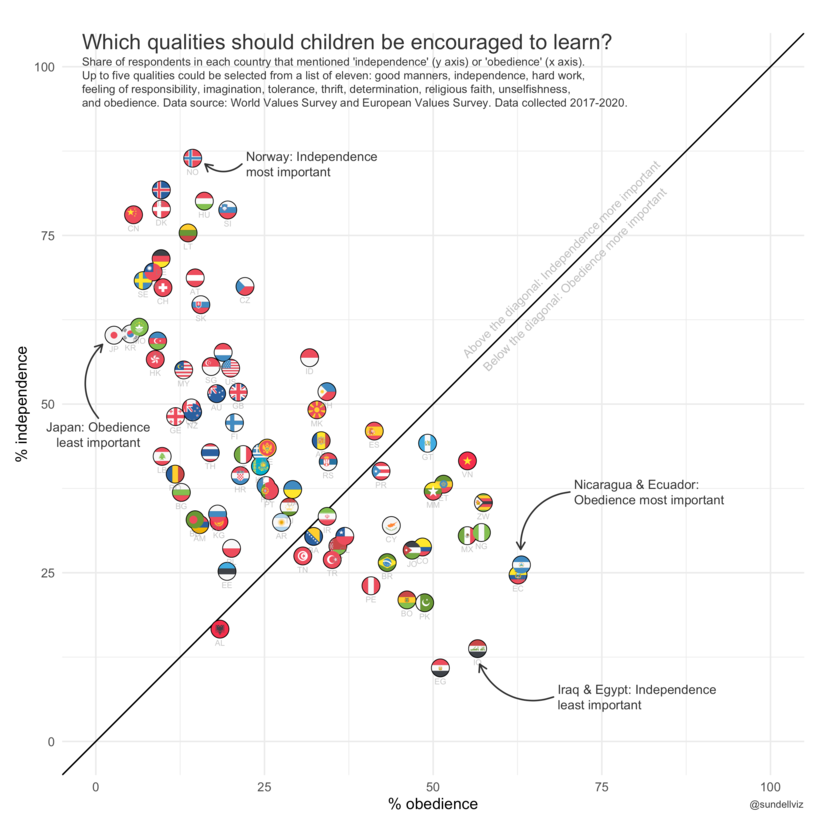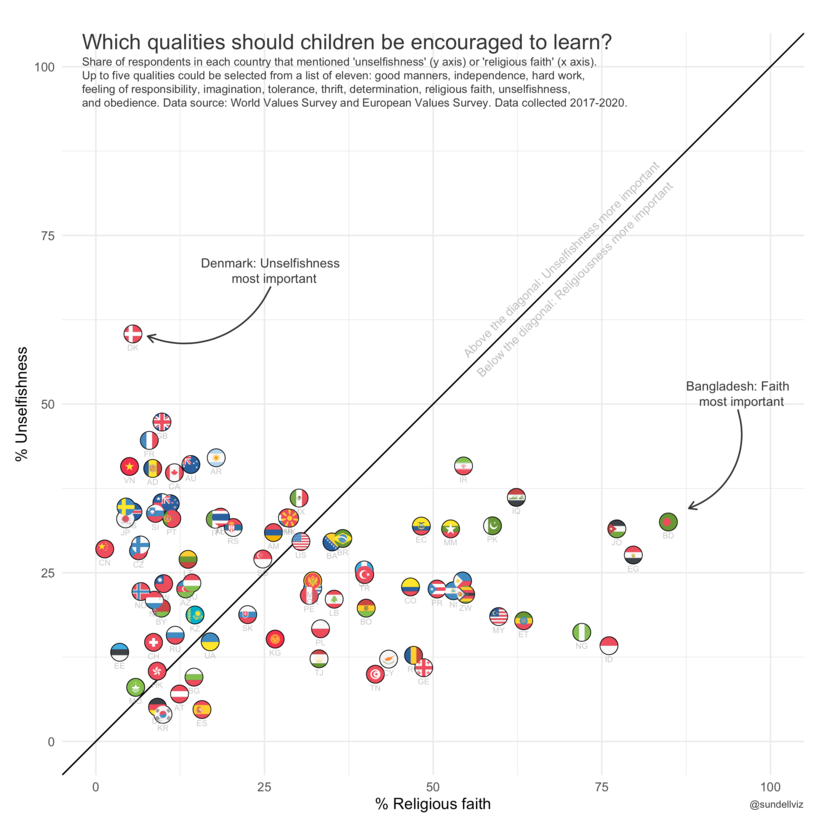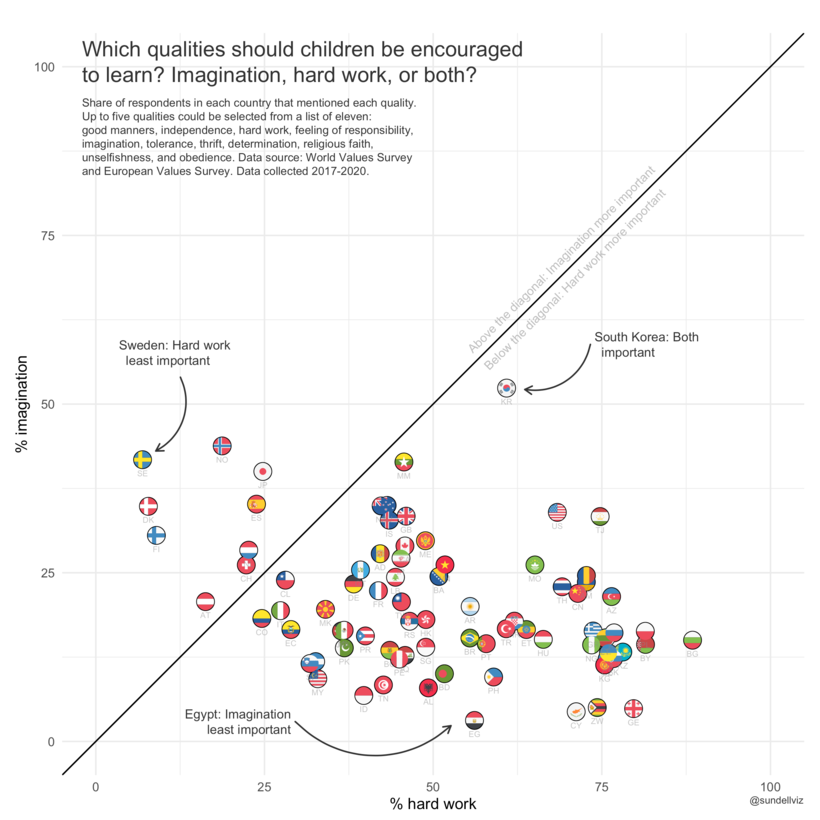You Can’t Read the Label of the Jar You’re In
We create and inherit values and beliefs from previous generations and our ancestors, which label and divide us. We have been shaped by age, gender, religion, nationality and so many factors that put us in a jar with a label. There are not only societal divides but the brand of car we drive matters. It also is telling whether we are country bumpkins or sophisticated urban dwellers. Are these natural factors or are they categories, labels and judgments that were created by humankind?
Our cult-ure has significant impacts on our belief systems and values. Research found that cultural influences can rewire our brains, which influences how we view the world around us.
In an article, Which Values Children Should Be Encouraged to Learn, By Country, Anders Sundell provides illustrations of the most important values people think children should learn at home, across more than 80 different countries. Sundell used data from the World Values Survey, an international survey that interviews hundreds of thousands of participants from across the globe.
Independence or Obedience Value and Label
Nordic countries value independence and find obedience to be a less important quality to instill in children. According to Eurostat, the most common age to leave home in Sweden is between 17 and 18—nearly a decade sooner than 26 years old, the average age across the EU. Denmark’s average age to leave home is also below the European average, at 21 years old. Respondents in Iraq, Egypt, Nicaragua and Ecuador believe obedience is much more important for children to learn, which means that independence is least important.

Faith or Unselfishness?
Bangladesh, Egypt, and Jordan all place a strong emphasis on religious faith. Denmark ranks unselfishness as most important. The US and Hong Kong fall right in the between, placing relatively equal importance on religion and unselfishness. Unfortunately, there is no explanation of what unselfishness actually means, which makes it an even more curious label.

Imagination or Hard Work Label?
Nordic countries like Sweden, Norway, Denmark, and Finland believe imagination is more important for children to learn than hard work. In Japan, imagination ranked as a more important value to teach children than hard work. It is encouraging that in a country that has some of the highest standards for quality work, imagination is highly valued. And people that create creative works of art like anime, for example, value an ability to imagine and see possibilities.
Is it Time to Consider Peeling the Label and Letting Go?
We were born with an ability to examine what is possible and to become aware of our own operating system—our beliefs, our values, our labels, our consumption, our attention, our way of life, and the role of work in our life and those of our children. These visuals simply give us a glimpse of what we have created and what is valued. And reminds us that it is us who instill the values that we adopt. It is us who judge or blame the systems we ourselves inherited or created.
But what if there is another way? Maybe it’s not about blaming or judging, as the only person we can change in our lifetime is ourselves, but rather it’s about examining what we are bringing into our world and how we want to show up for ourselves and our communities.
There are amazing things happening all over the planet right now, even when things may seem hopeless; you just have to be open to find or create them. And walk away from what no longer serves you, and future generations, and walk towards what is calling you.



